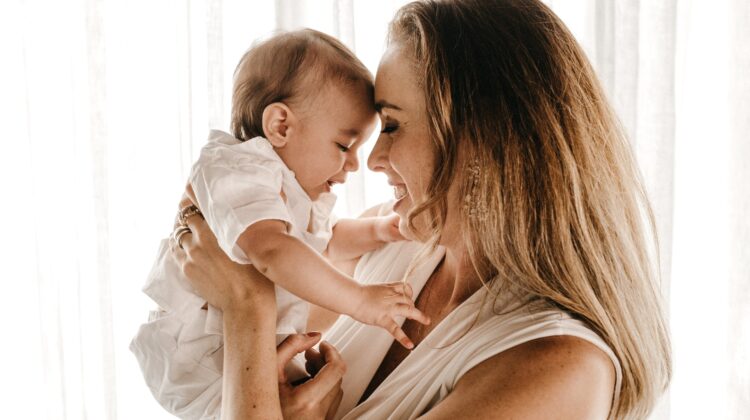
Human society has progressed greatly and women are now increasingly more engaged in their careers. However, pursuing your career goals means you’ll have to delay motherhood for a later age.
Unfortunately, this does come with a downside since female fertility significantly declines after 30. As a result, women risk a lowered chance of getting pregnant naturally or even face complete infertility if it is too late.
This is where the science of egg freezing intervenes to enable these women to have their own biological children when they are ready. Egg freezing is not a savior for only the career driven women but also for those struggling with cancer and risk losing their reproductive capabilities. Let’s see how egg freezing works and how it helps with your future fertility.
The Egg Freezing Process
Egg freezing is an assisted medical process where the healthy, mature eggs of a woman are harvested from the ovaries and frozen to preserve the quality of the eggs. These eggs can be frozen as long as you wish and can be thawed once you are ready to become a mother.
Here are the general steps involved in egg freezing.
- Step 1: You will go through some fertility testing to ensure you do not have any other medical condition that would damage the quantity or quality of the eggs.
- Step 2: You will be placed under some medication course to encourage egg maturation. The medication includes oral pills and self-administered injections. This typically lasts 2-4 weeks.
- Step 3: Approximately 36 hours before the egg retrieval, you will be given a trigger shot (typically HCG injection) to send the eggs into the ovulation phase.
- Step 4: You will be administered anesthesia and your doctor will use an ultrasound-guided needle and suction tube to collect the mature eggs from your ovaries. This process is minimally painful.
- Step 5: The eggs are then frozen using the vitrification technique that ensures the quality of the eggs is preserved.
- Step 6: Once you are ready to become a mother, these eggs can be thawed and used in the IVF/Surrogacy process to help you get pregnant.
Who Benefits The Most with Egg Freezing?
In general, egg freezing is a great option for all women who want to or need to delay childbearing.
Women who are undergoing cancer treatment face an infertility risk since radiation therapy and surgeries may damage the ovaries.
There are cases where women need to undergo hysterectomy treatment. This treatment requires the removal of the ovaries.
For women who are pursuing a career goal, it is likely to postpone motherhood. But women at advanced maternal age face the risk of difficulty getting pregnant and increased chances of miscarriage.
Egg freezing ensures that these women have a secure way to preserve their fertility. Using your own eggs means the baby will be biologically related to you.
A Few Tips for Egg Freezing
- If you are planning to freeze your eggs, do it as young as possible. Remember that your eggs age as you age and the oocyte health declines. Freezing eggs at a young age means these eggs will be healthier and it will increase your chances of getting pregnant.
- Egg freezing boasts a successful pregnancy rate of over 70% for women who freeze their eggs before 35.
- Many corporate organizations are now offering financial aid for their female employees opting for fertility preservation. Speak to your employer to see if they have a similar plan.
- There are many philanthropic organizations who offer grants for cancer patients who would require fertility preservation. You can research these organizations and apply for grants.
- Try to lead a healthy lifestyle to improve your egg quality before undergoing egg freezing. These include eating healthy, stopping smoking, minimizing alcohol intake, getting more sleep, and regular exercise.
- Consider contacting multiple egg freezing clinics before choosing the right one. Explore their policies and see what kind of security they offer in a natural disaster scenario.
- It is best to bring a support person along with you on the day of egg retrieval.
- Generally you can resume your normal activities after egg retrieval within 24 hours of rest. However, if you are feeling any discomfort, bloating or pain, contact your clinic ASAP.
Egg Freezing Cost and Risks
Egg freezing is an expensive process and can cost anywhere between 15,000 INR to 30,000 INR per year or around a couple of lakhs depending on the egg freezing option you choose from. You also need to keep in mind the storage cost. Also, it can vary according to the location, the hospital and the city. Weigh all your options according to the budget you have in hand. Additionally as discussed above, do your research to see if you can avail the financial aid offered by different organizations for this treatment.
What are the risks?
Every procedure has a few symptoms and risks involved and you will get an in-depth detail before starting the procedure. As the process involves the stimulation of the ovaries using drugs, it might sometimes lead to ovarian hyper stimulation syndrome (HSS). This syndrome makes the ovaries swollen and can cause symptoms like vomiting and bloating. In extreme cases, it might lead to blood clotting. You might also have mood swings, headaches or weight gain.
Just as IVF this process is invasive and might require multiple cycles. The process has both its advantages and disadvantages and it is important to weigh them properly and consult your doctor before taking the leap.
Conclusion
Egg freezing is becoming more and more popular as women are participating in better career roles. Note that many celebrities have also opted for fertility preservation. The process gives you relief knowing you can have your biological children when you are ready.
Hope you found the article useful. Please leave your inputs in the comments.

Leave a Reply